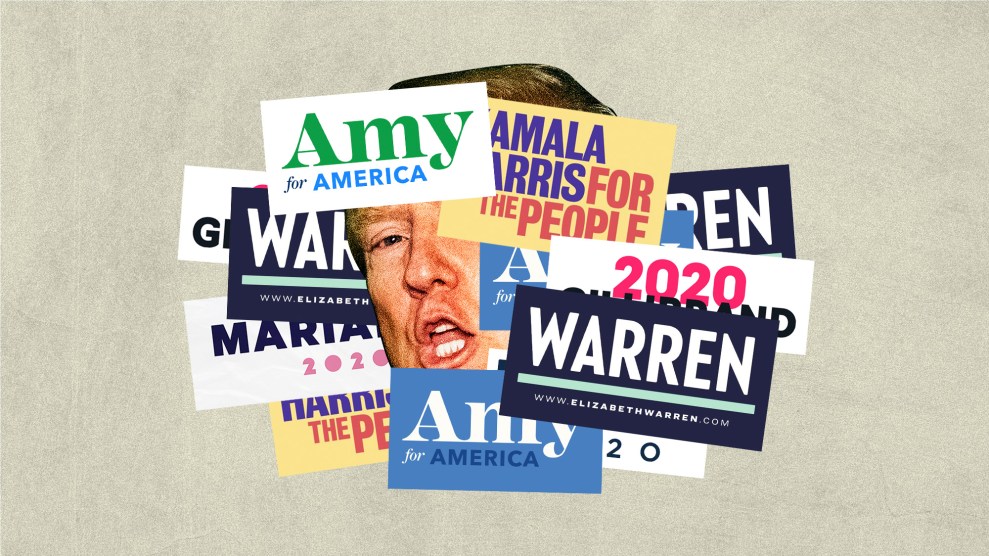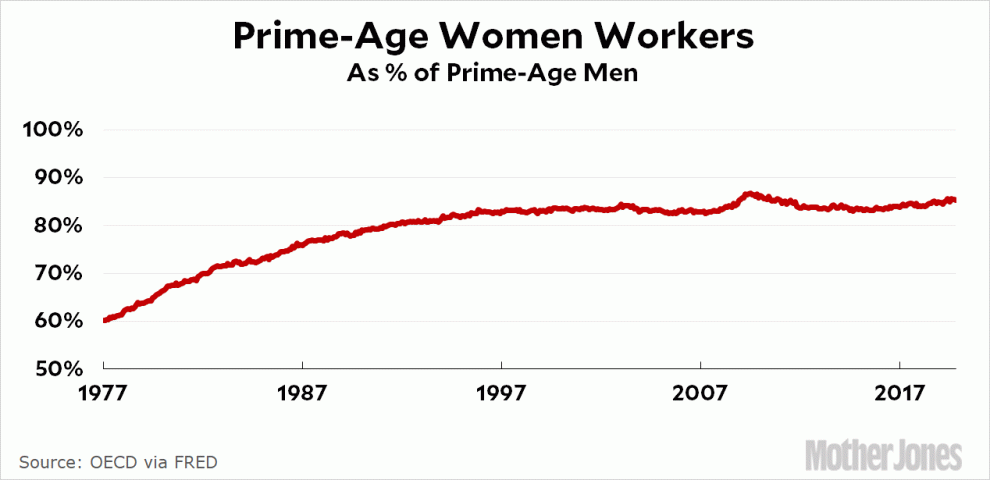
Melina Mara/The Washington Post/Getty
Consider a public figure, maybe a celebrity, or a politician, or a musician you really adore. Once you’ve pictured this person, try and identify what it is about them you find so appealing. Maybe they make you feel hopeful. Or they have a thrilling authenticity about them that seems so rare to find nowadays. Do they communicate the fact that they are reliable, solid, someone you can trust? Basically, do you like them for a reason?
Whoever this person is, according to Steven Goldstein the answer is yes, and he can explain what that reason is. Goldstein, a former producer for Oprah Winfrey and a former lawyer for the House Judiciary Committee, has spent most of his adult life trying to figure out what makes people likable. (He also led the LGBTQ organization Garden State Equality when New Jersey legalized same sex marriage.) From booking likable guests for successful Oprah segments, to finding persuasive—read, likable—witnesses for Congress, he was a connoisseur of likability long before Barak Obama famously put down Hillary Clinton by calling her “likable enough.”
Goldstein has shaped his insights about the anatomy of human likability into a new book, The Turn On: How the Powerful Make Us Like Them-from Washington to Wall Street to Hollywood. The book is a cumulation of Goldstein’s 20-plus-years of research, notes, and observations distilled into eight traits he’s identified as comprising the keys to different kinds of likability. Likability, he argues, can be distilled down to four pairs of these traits: Captivation and hope, authenticity and relatability, protectiveness and reliability, and, compassion and perceptiveness. Over the course of the 269 pages, Goldstein dissects their strengths and their weaknesses, and how they intersect with some of the biggest names in politics and pop culture.
“Likability in public life is something that can be created,” he says. “With a huge caveat: Likability, or the presentation of likability, is always rooted in the truth.”
The ways that likability intersects with constructs of gender, sexuality, race, and politics is not lost on Goldstein, who is a lifelong establishment Democrat. (In 2008 and 2016 he was a delegate for Hillary Clinton at the conventions.) In one of the book’s later chapters, entitled “Anne Hathaway, Hillary Clinton, and the Double Standards for Women”, Goldstein lays out the ways in which society loves to see women who achieve great heights, and maybe loves watching them fall even more. “Look no further than Hillary Clinton,” he writes. “The most analyzed woman in American history.”
As the election only heats up, the misogynistic trope that “women can’t be elected” has once again reared its ugly head as a favorite talking point among political pundits. It also may be Trump’s best con yet—as our colleague, Pema Levy, brilliantly describes in her Web Cover Story this week. In the increasingly unlikely case that either Massachusetts Senator Elizabeth Warren or Minnesota Senator Amy Klobuchar become the Democratic nominee, the country has to prepare for incessant attacks on their electability, couched in concerns about their gender and likability. So Mother Jones invited Goldstein to have a chat, break down what likability actually means, and dive into the double standards of likability in the context of this insanity we call an election.
Walk us through these traits of likability.
How we fall in like with a public figure follows the process by which we fall in love with a romantic partner. The first two traits which work together are captivation and hope. Captivation is very simple: Is this person interesting enough or is the person boring me to death? When you go on a date, the first thing you notice is the way a person looks. That’s part of captivation. Does the person do it in a hopeful, positive way? Because, captivation could be negative. It could be a negative star of a reality show, like Omarosa. Captivation without hope and positivity is a train wreck.
Then you talk about authenticity, but why is that paired with relatability?
Authenticity, which is the most complicated trait, and relatability. The second date’s really the key one, because you want confirmation that what you saw was real. What I liked in the first date, was that for real, was it authentic? And then, do I relate to this person?
Alright, we’re starting to “date” this person. What’s next?
You’re thinking about a relationship with the person or with the public figure. Then comes the traits of protectiveness and reliability. We enter relationships hoping the other person will be there for us always and, in a sense, protect us. And in public life, who protects us? Well, politicians sometimes protect us. Will you always be there for me? That’s what we ask a date or a public figure.
So what’s next? Are we getting married to this fictional person?
Finally, we have what I call the conscience traits. The fourth stage: Is this person compassionate and perceptive? Is the person compassionate toward people not like them—somebody who might be disadvantaged. And is the person perceptive to my needs? It turns out, that’s how you fall in love in real life. And that’s how a celebrity, whether a whether an entertainer or CEO or politician, makes you fall in like with them.
They’re just people with human characteristics that are more magnified than others?
Not all of them are so human! But, you know, you mention a really good point, because here’s a premise of my book: Likability is a construct. Likability in public life is something that can be created. Am I saying you can create an image? Yes! With a huge caveat. Likability is always rooted in the truth. You can’t take a totally unlikable person and make them likable, and you can’t assign traits to someone in public life that he or she doesn’t already have.
OK, how would you define likability?
Likability is the combination of personality traits that engages another person into an emotional relationship with you.
You say niceness and likability aren’t the same things, someone can be nice and unlikable and vice versa. How are these different?
People who have [nice] applied to them are generally milquetoast. Nice people might have 80, 90 or 100 percent support, everybody likes them, but nobody would go to bat and die for them. Likability does involve—this might sound counterintuitive—some degree of polarization. Having a strong enough personality where some people are going to be instantly attracted to it, and others not.
Why should we care if we’re likable? Wouldn’t you rather be nice than likable?
Likability is leverage. It’s a tool to achieving a better world. It matters for a president to get their agenda passed through Congress, through one-on-one meetings with members of Congress. Now, we can argue, ‘oh, you wish likability were not so important.’ But it is! It’s a democratizing thing. We all have a subjective ability to assess whether somebody likable. We all might have different answers, but the most educated people and everyday Americans have opinions on who’s likable.
So likability is how you get shit done?
Yep! And, sometimes unlikability.
You also talk about something else in your book: faux authenticity. It’s mentioned when describing our Commander-in-Chief. Walk us through what you mean by faux authenticity and why that’s particular to Trump?
[Trump] was likable enough to enough voters. His base found him authentically representing their concerns. He was an angry white man. How they relate to him, whether he’s a millionaire or a failed billionaire or gazillionaire, or failed gazillionaire, I don’t know, but he was able to pull it off. So in 2016, particularly in the Republican primary, Donald Trump gave enough voters the appearance of authenticity. His devices, like coming up with names, offensive names, like “Pocahontas,” or “Shifty Schiff”—that’s not authentic in that he just thought of it—it’s all planned. But he gives the appearance that it’s unplanned. Donald Trump in 2016 was able to exploit the sexist biases that the public has in viewing a woman’s likability.
Let’s talk about a woman’s “likability.”
The first challenge women face in likability is the fact that we’re always talking about their likability. We don’t hear whether men are likable. Hillary Clinton, her whole career: Is she likable enough? There are plenty of unlikable men who seem to get a pass. She didn’t. Hillary Clinton’s problem was that she was too authentic. She refused to put on a performance. And that doesn’t work in America. Donald Trump put on a show. America had a choice between a woman who refused to put on a show and a man who gave you tickets to a free circus. And they chose the circus.
Let’s talk primary season. Who’s catching your eye right now in terms of the traits that you’ve described? Who’s catching your eye in this race as someone who you see utilizing these traits effectively?
It looked like Elizabeth Warren had the nomination wrapped up. The reason that she was polling higher had to do with her likability improvement. Elizabeth Warren wants to come across as someone who likes politics. I speak in the book of this concept called “Joy of Performance.” People out there like people who like their jobs. Elizabeth Warren is coming across as a wonk. The “I’ve got a plan” thing. She is who she is: a professor and a wonk.
I actually thought she had it wrapped up. But she’s not great on defense. You notice how she had to explain her position on Medicare for All. There’s Bernie Sanders, he’s for Medicare for All. He calls himself a socialist. But they’re attacking her. It’s not that people in America don’t trust women to do as good, or better, a job than men. They just don’t want women out in front taking the credit. Women face what men don’t face.
Why do you think that is?
I think society has a very long way to go in dealing with sexism. As a member of the LGBTQ community, I am astounded at the levels of sexism I see. And I take racism seriously, homophobia and transphobia seriously. Sexism, to me, has made the least strides in being eradicated. And I think it’s because so much is at stake. It’s 50 percent of the population. And to give women equality, maybe, maybe men, the other 50 percent, would feel like something was being taken away from them.
Who do you see right now in the current political scene as being someone who is sort of the gold standard of using these traits that you talk about as a way to get their agenda across?
Stacey Abrams.
Really? Explain.
Stacey Abrams is the woman who should be governor of Georgia. She is one of the most likable talents I’ve ever seen. After the governorship was stolen from her, [she] gave the response to Trump’s State of the Union, and she was so compelling. She genuinely has every quality. I could go up and down the list and they’re remaining intact because she didn’t run this year. And I would go so far as to tell you that I think she’s got a 50/50 shot at the vice presidential nomination, because she is so likable.
I’m curious to ask about Nancy Pelosi, because she is the most powerful woman in politics.
She’s a great example of likability not being seen by everybody as nice. I find her very nice, I’ve met her, but that’s not what we’re talking about here. Listen, Nancy Pelosi produces polarizing reactions. I’ve vacationed around the country, including in the south and the west, and seen Republican candidates run commercials against Nancy Pelosi when she really has nothing to do with the race. So she’s polarizing. And she will go down in history as one of the greats.
Yeah, she seems to subvert a lot of the gender traps that some of these traits fall into.
You know, Nancy Pelosi is interesting. I’ve heard people call her the B Word. There’s this meme on social media meme about her where she emerges from the White House, in her flowing red coat and sunglasses. She seems to say, OK, you could think I’m a B. It’s working. I’m in control here.
This interview has been edited for length and clarity.


















